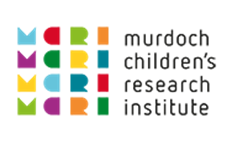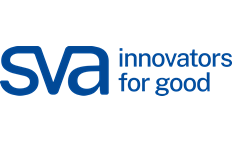RSTO findings informing policy
- Published
- Wednesday, May 29, 2024 - 9:46 AM
Response to Productivity Commission draft report Inquiry into Early Childhood Education and Care
The Australian Productivity Commission’s Inquiry into Early Childhood Education and Care is seeking to bring together ways to support better outcomes for children and families.
In response to the draft report, Restacking the Odds focused on three key issues for the Commission to consider to strengthen its recommendations:
1. Support to embed key indicators of quality, quantity and participation data at all levels
Opportunities to enable data-driven decision making exist at all levels of the ECEC system. It is particularly important to put data in the hands of frontline workers who can act to improve equity for children.
2. Foster a culture of continuous improvement across the ECEC sector
A high-quality ECEC system requires a culture of continuous improvement, where services are empowered to identify issues of quality and participation, and course-correct in real time.
3. Improve access to ECEC for children experiencing disadvantage
System navigators, place-based initiatives and Integrated Child and Family Hubs each play an important role in reducing barriers to ECEC and to other health, education and social supports.
Our feedback in this submission is based on insights gained from RSTO research and the co-design and implementation of the RSTO framework with ECEC providers and place-based practitioners working across the early childhood development system supporting children and families in vulnerable communities.
This submission includes input from representatives of RSTO partner ECEC providers and place-based initiatives from Logan Together, Gladstone Region engaging in action Together, Gowrie Victoria, Gowrie South Australia, The Hive Mt Druitt, Bourke and District Children’s Services, By Five Wimmera Southern Mallee, Go Goldfields and Hands Up Mallee.
Ready solutions for the challenges facing Australian children and families.
Centre for Community Child Health Pre-budget Submission 2024-24.
‘Generating data-driven decision making at the front line’
One of the challenges identified in this submission is that place-based initiatives require enhanced capability for continuous improvement.
In response, a solution presented by the Centre for Community Child Health features RSTO in the co-design of a scalable data-driven continuous improvement model of place-based initiatives to address inequities. Collecting, interpreting and acting on data to inform where efforts to improve outcomes for children and families should be made.
Putting QLD Kids First Consultation Paper
The Centre for Community Child Health was one of the respondents to the Queensland Government's consultation during the first stage of the Putting QLD Kids First initiative.
‘Restacking the Odds is working with two place-based approaches in Queensland - Logan Together and Gladstone Region Together - to provide a consistent framework across early childhood services and place data in the hands of local practitioners. This framework provides a central focus for service providers and community to work together to identify practical, local solutions.’
RSTO’s collaborations in Queensland have demonstrated the value of developing a shared language across stakeholders. This includes a common indicator framework, which was also used in the paper to support the work of the right@home project.
Restacking the Odds is a collaboration between the Centre for Community Child Health at the Murdoch Children's Research Institute, Bain & Company and Social Ventures Australia.
RSTO would like to acknowledge the support of project partners the Paul Ramsay Foundation and PALO IT.
We acknowledge the Traditional Owners of the land on which we work and pay our respect to Elders past, present and emerging.





